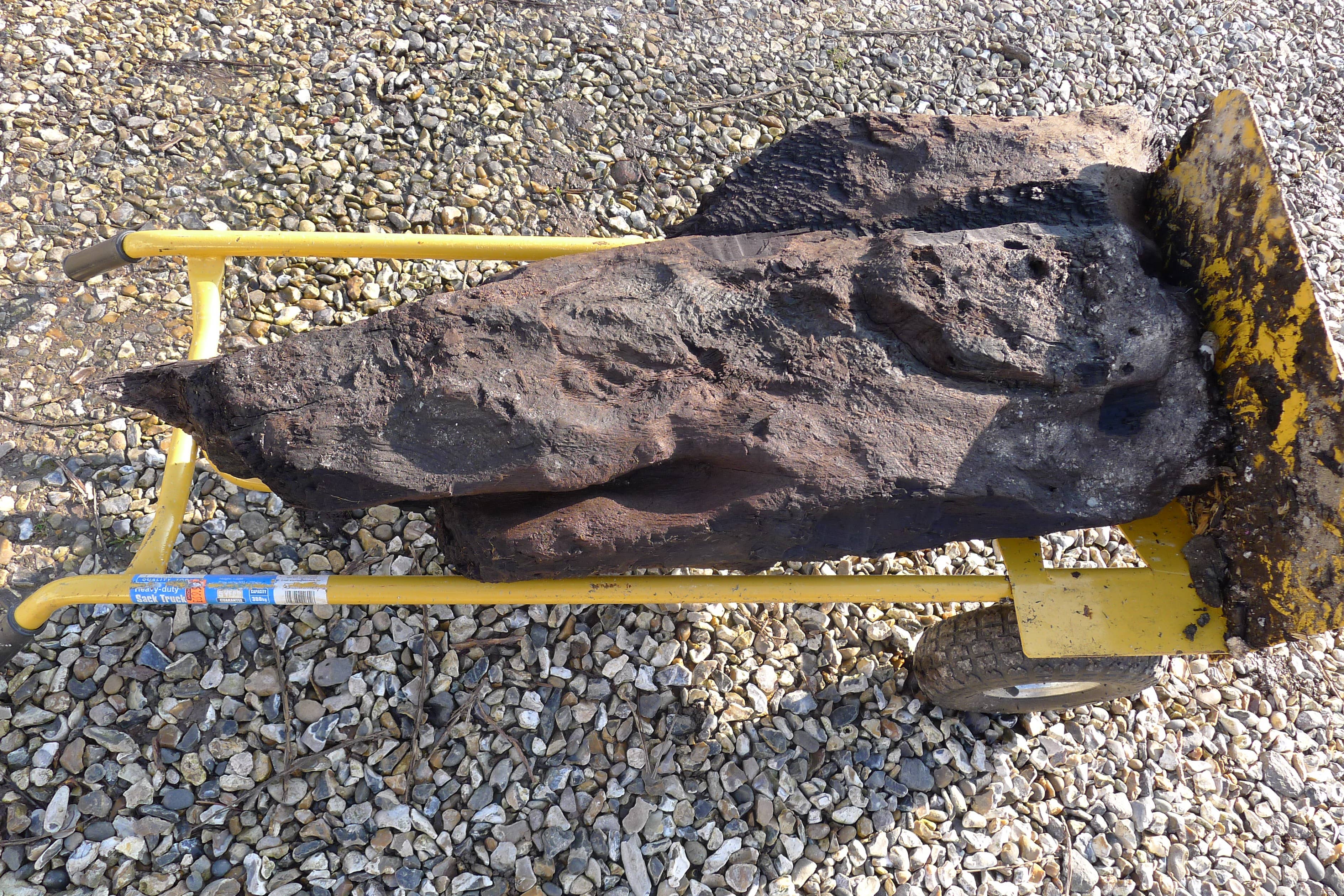Timber discovered by chance in Britain believed to be more than 6,000 years old carved wood
The piece of oak was discovered lying in peat during the construction of an outbuilding at a property in Berkshire

Your support helps us to tell the story
From reproductive rights to climate change to Big Tech, The Independent is on the ground when the story is developing. Whether it's investigating the financials of Elon Musk's pro-Trump PAC or producing our latest documentary, 'The A Word', which shines a light on the American women fighting for reproductive rights, we know how important it is to parse out the facts from the messaging.
At such a critical moment in US history, we need reporters on the ground. Your donation allows us to keep sending journalists to speak to both sides of the story.
The Independent is trusted by Americans across the entire political spectrum. And unlike many other quality news outlets, we choose not to lock Americans out of our reporting and analysis with paywalls. We believe quality journalism should be available to everyone, paid for by those who can afford it.
Your support makes all the difference.A metre-long piece of carved wood discovered by chance is more than 6,000 years old – making it the oldest carved wood in Britain, experts say.
The decorative markings were made by Late Mesolithic people 2,000 years before Stonehenge was built and 4,500 years before the Romans came to Britain.
The piece of oak was discovered lying in peat during the construction of an outbuilding at a property in the village of Boxford in Berkshire.
Experts suggest the carving pre-dates by 500 years the only other known Mesolithic carved timber in Britain, discovered near Maerdy in Wales.
Historic England has dated the specimen to the Late Mesolithic period (4640-4605 BC).
The purpose of the markings on the wood is not known but they look similar to the decoration seen on early Neolithic pottery, experts suggest.
Duncan Wilson, chief executive of Historic England said: “It’s remarkable that by doing routine building work a piece of modest-looking decorative wood turns out to be the oldest ever found in Britain.
“This exciting find has helped to shine new light on our distant past and we’re grateful to the landowner for recognising its significance.
“Amazing discoveries like these remind us of the power of archaeology to uncover the hidden narratives that connect us to our roots.”
The waterlogged carved oak is one metre long, 0.42 metres wide and 0.2 metres thick.
It was discovered during ground works for the building of a workshop and was found approximately 1.5 metres below the surface not far from the present course of the River Lambourn in a layer of peat.
Peat is able to preserve organic materials like wood over thousands of years because the normal processes of decay are slowed right down due to a lack of oxygen within the peat.
It’s remarkable that by doing routine building work a piece of modest-looking decorative wood turns out to be the oldest ever found in Britain
The timber was removed and later that day it was cleaned and found to have some markings that did not appear to be natural.
The markings on the wood are also believed to be similar to the body decoration on the Shigir Idol – a wooden sculpture found in the Ural mountains of Russia which, at 12,500 years old, is believed to be the oldest example of carved wood in the world.
The landowner, Derek Fawcett, a retired urological surgeon, said: “It was a rather surprising find at the bottom of a trench dug for foundations for a new building.
“It was clearly very old and appeared well preserved in peat. After hosing it down, we saw that it had markings that appeared unnatural and possibly man-made.
“I have been working with Historic England and the Boxford History Project since I found it, now over four years ago, while radiocarbon dating of the wood was carried out.”
After being notified of the find in 2019, West Berkshire Council’s archaeologist Sarah Orr contacted Historic England for expert advice.
To coincide with museums week (June 5-11) Derek Fawcett has donated the timber to the West Berkshire Museum in Newbury where it will eventually go on display.
The museum is also working with the Boxford History Project to arrange for the timber to go on loan to the Boxford village heritage centre.


